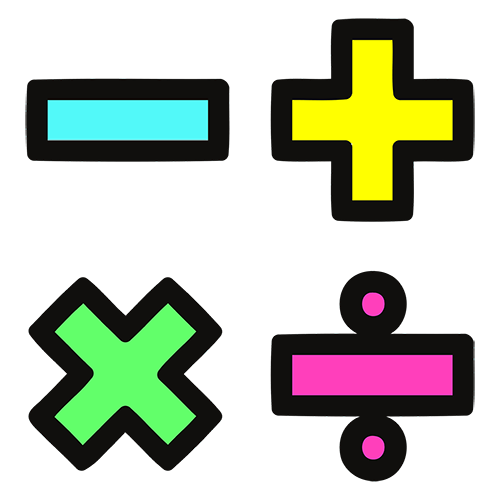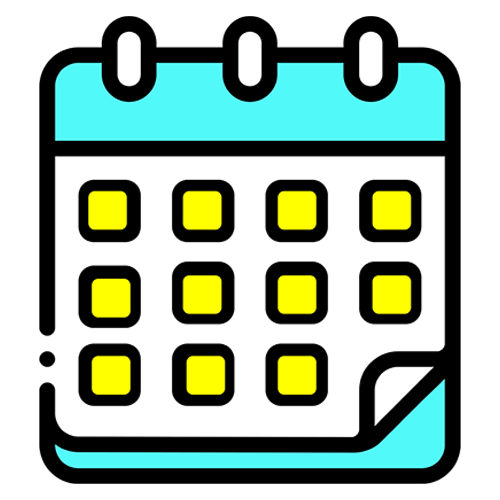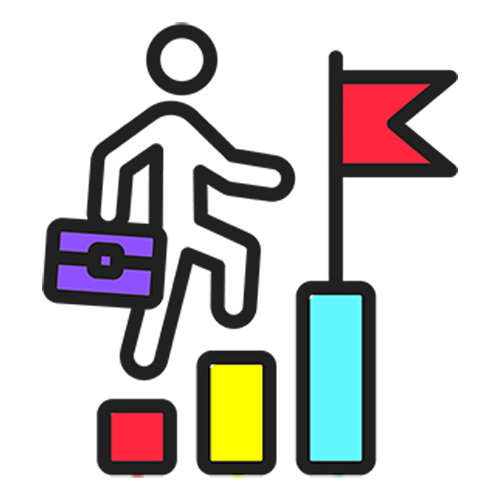Performing 2-digit multiplication is tough stuff that requires a lot of practice and repetition (and repetition and repetition). In the past, I’ve taught many methods, including the box, partial products, lattice, and the traditional standard algorithm.

Some students catch on quickly and easily adapt to various methods, while others struggle to grasp even one method.
Many students (and most parents) are relieved to focus on the standard algorithm. The standard algorithm is the traditional method that’s used by most people.
By 5th grade, most states require students to become fluent in the standard algorithm. Through the years, I’ve searched and couldn’t find a graphic organizer that my struggling students found success with.
Several of my students had difficulty learning the steps and performing them in the correct order. I realized that my strugglers were typically visual and hands-on learners, so I developed a graphic organizer to help students with the algorithm.
2-Digit Multiplication Visual Organizer
This organizer is a method that teachers can use to teach the traditional algorithm. The organizer is student-friendly and uses shapes and colors to assist students in performing the steps in order.
While teaching, I constantly say, “Circles go with circles,” or “Squares go with squares.” That cues students to look for the next step within that particular shape. Those statements help students remember where to place their products as they solve the multiplication problems. For example, students perform each step for the red circles before moving on to the blue squares.
As you can see in the pictures, the organizers use colors and shapes. The colors and shapes can be added or removed based on the level of accommodations your students need.
Beginners benefit from colors and shapes. As students become more proficient, colors can be eliminated or even added by students if needed. Highlighters can also be used to add emphasis and focus to specific steps students need to be reinforced.
Visual Strategy Anchor Chart
FYI – the above anchor chart is vintage – from 2014, but you get the idea. Initially, these sets used triangles rather than pentagons. I didn’t feel that the triangles gave students enough writing space, so the shape was changed to pentagons.

I LOVE these C-Line Pocket charts that you can purchase from teacher stores, Wal-Mart, or Amazon. You slide the page inside the pocket chart and VOILA! No need to laminate.
Students like using pocket sleeves because the dry-erase markers make it simple to write and erase without worrying about making mistakes.
Double-Digit Multiplication Organizers and Worksheets
I had a difficult time finding worksheets without regrouping. I wanted my students to focus on the standard algorithm for multiplication without the added step of regrouping.
Once students are comfortable multiplying without regrouping, they can learn that additional step. Regrouping should go smoothly after spending time focusing on problems without regrouping and learning the process of 2-digit multiplication.
These Shape Math multiplication organizer sets contain plenty of practice pages, so use as many or as few as your students need. In addition, the sets make it easy to differentiate based on the unique needs of your learners.
My students have typically needed extra practice and LOTS of repetition, so plenty of different multiplication with regrouping worksheets are included in the original set.
Additionally, the set comes with three different-sized graphic organizers. The first and largest organizer takes up a full page. Other pages feature four organizers; another page contains nine blank organizers. These pages are perfect for you (or your students) to make up problems. My students love to make worksheets for each other and be the “teacher.”
The page below is folded, which is a simple accommodation for students who become overwhelmed at seeing a full page of problems.
The sizes, colors, and worksheets make differentiating and scaffolding a breeze. These Shape Math multiplication and division sets are my personal favorites, and they’re student-tested and teacher-approved!
Tips for Teaching 2-Step Multiplication to Students
The short (5-minute) video below explains how I teach 2-digit multiplication to students using the Shape Multiplication template.
Want to learn more?
If you want to read more about this multiplication strategy – and long division, too – here are some articles to check out:
Differentiated Multiplication Worksheets:
All Multiplication Resources – Check out all the multiplication resources I offer in my Teachers Pay Teachers store.
2-Digit Multiplication – a differentiated strategy for teaching multi-digit multiplication using organizers and worksheets to help students visualize the multiplication process.
2-Digit and 3-Digit Multiplication – This multi-digit (3-digit x 2-digit) multiplication method uses colors and shapes for a visual, concrete strategy.
Articles about Multiplication:
3 Ideas for Teaching Multi-Digit Multiplication – Here are 3 FAST ideas for teaching multi-digit multiplication. These interventions are easy and quick for busy teachers.
2-Digit Multiplication Worksheets: Differentiated – Here’s a visual method for teaching 2-digit multiplication using differentiated, visual cues to guide students’ learning for success.
2-Digit Multiplication Made Easier! – Here’s how to use the double-digit multiplication organizers and worksheets.
Articles about Long Division:
Differentiated Long Division Worksheets for FREE – Grab these differentiated long division worksheets for FREE and dramatically boost student success and your teaching success!
How to Teach Multi-Digit Multiplication and Long Division – This blog article will introduce you to the differentiated multiplication and long division resources I have available. You’ll learn exactly how I use them in my own classroom.
Graph Paper Math Intervention – This blog article provides an explanation of how to use graph paper as a quick and easy intervention resource with your students. It includes links to free printable graph paper and ideas about how to use it in your classroom.

















